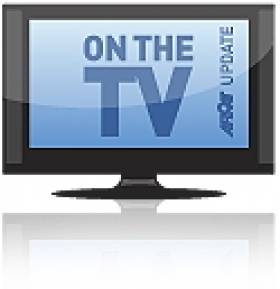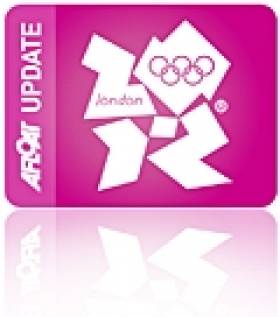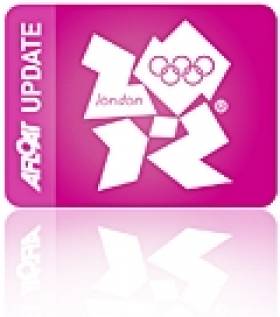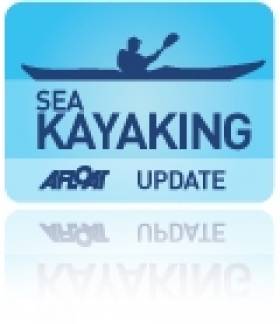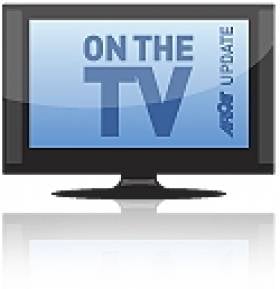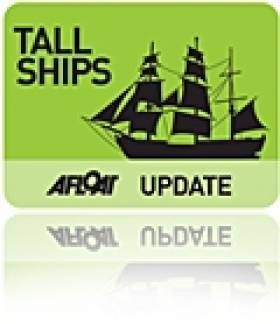Displaying items by tag: TV
Teens Wanted For New Marine Wildlife TV Show
#OnTV - RTÉ is on the lookout for Irish teenagers to take part in a new marine wildlife documentary series shooting in Australia later this year.
Blue Zoo will follow a group of eight young people - four from Ireland and four from Australia - working together at the New South Wales Blue Zoo, assisting "dolphins, seals and turtles who have been rescued and rehabilitated or bored into human care in the park".
The show's producers are seeking 14- to 15-years olds with an interest in conservation work and making the world a better place - and who can explain why this would be their dream in 100 words or less.
RTÉ TEN has more on the story HERE.
Keep Up With Ireland's Aquatic Olympians On TV
#OLYMPICS ON TV - Sailing action continues for another week at the London Olympics, with BBC Three and BBC HD being the best places to catch the race action on TV.
First place Annalise Murphy will be racing her Laser Radial this afternoon and tomorrow - races that sadly will not be televised, according to our sources - but her class' medal race scheduled for Monday 6 August at 2pm, with live coverage expected on RTÉ and BBC.
In the 49er, Matt McGovern and Ryan Seaton are half-way through their race schedule and will be in action in three races today 3 August, with two apiece on Sunday 5 August and Monday 6 August, and with the medal race in their class set for next Wednesday 8 August at 2pm.
In the 470, Scott Flanigan and Ger Owens have just got their campaign underway and will be racing this afternoon, tomorrow 4 August, Monday 6 August and Tuesday 7 August, with the medal race sheduled for Thursday 9 August at 2pm on BBC One.
James Espey in the Laser will also be in action today and tomorrow from 1pm, with the medal race in his class set for Monday 6 August at 2pm.
Meanwhile, David Burrows and Peter O'Leary will be looking to put their recent disqualification behind them this afternoon, with the medal race in their Star class to be contested on Sunday 5 August at 2pm on BBC Three.
In canoeing, Ireland's last medal hopes rest with Andrzej Jezierski in the men's C1 200m. The Polish native will be in action in the first heat of the day on Friday 10 August at 9.50am, with the semi-finals set for 11.15am should he qualify, and the finals taking place on Saturday 11 August at 9.45am.
In rowing, Sanita Puspure easily outclassed the field in her semi-final race, crossing the line 10 seconds ahead of her closest rival, and the Latvian heads into tomorrow's finals in lane 3 of the C group at 10.20am on BBC One and RTÉ Two.
Follow Irish Olympic Sailing Action On TV Next Week
#OLYMPICS ON TV - The Irish Olympic team's campaign finally kicks off at London 2012 this weekend with action across sailing, rowing and canoe slalom events - and Afloat.ie will keep you up to date on where you can catch the action live on TV over the next seven days.
In sailing, the first week's competition begins at noon on Sunday 29 July, when Peter O'Leary and David Burrows start their Star campaign. BBC Three is the best place to find live sailing coverage throughout the afternoon and most other days.
On Monday 30 July, Annalise Murphy begins her challenge for an Olympic medal with live Laser Radial action during the afternoon on RTÉ Two, while BBC Three continues its comprehensive coverage - no doubt featuring James Espey in the Laser.
More action in the Men's Laser and Star plus the Women's Laser Radial can be found on BBC Three on Tuesday 31 July, while Wednesday 1 August sees the first competition from Matt McGovern and Ryan Seaton in the 49er (plus sailing in all over classes bar the Star).
The 470 pair of Scott Flanigan and Ger Owens will get afloat on Thursday 2 August, with coverage of their class as well as the Men's 49er and Star throughout the afternoon on BBC Three.
In other Olympic highlights, Eoin Rheinisch begins his challenge in the Men's K1 canoe slalom heats on RTE Two from 1.30pm on Sunday 29 July, while Hannah Craig will be in the spotlight in the Women's K1 heats from 2pm on Monday 30 July.
Men's K1 semi-final action on Wednedsday 1 August will be broadcast live on BBC Three, Eurosport and Sky 3D, with the K1 final - which could decide Ireland's first aquatic medal - set for 3.15pm on BBC Three.
Thursday 2 August brings the Women's K1 semi-finals on RTE Two from 2pm, with the finals scheduled from 3.55pm on BBC Three.
Meanwhile in rowing, Ireland's sole competitor Sanita Puspure starts her Women's Single Sculls campaign on Saturday morning.
RTE Two and BBC One will have coverage of the repechage from 11am on Sunday 29 July, with quarter-finals on the morning of Tuesday 31 July (RTE Two) and the classifications and semi-finals on BBC One from 11am on Thursday 2 August.
Catch the North Coast Sea Kayak Trail On TV This Sunday
#KAYAKING - Northern Ireland's new North Coast Sea Kayak Trail is set to feature on BBC TV this weekend, OutdoorNI reports.
Earlier this month, Ellie Harrison from BBC's Countryfile programme paddled the trail with local guide Robin Ruddock and also visited the Port Moon Bothy, an old cottage refurbished as a rest stop for kayakers on the trail.
"The North Coast Sea Kayak Trail will offer a completely unique way to explore the Causeway Coast and the converted bothy at Port Moon is fast becoming the most talked about and indeed most spectacular accommodation in Ireland,” said CanoeNI.
The new trail joins a host of coastal canoe routes launched this year by CanoeNI, as previously reported on Afloat.ie.
Catch the North Coast Sea Kayak Trail on Countryfile this Sunday 27 November at 6.25pm on BBC One Northern Ireland.
Clipper Race Doc Goes Global on UK television
Six hour-long episodes capture every emotional twist and turn, high and low of the 35,000-mile race, following the participants in the ten-month-long challenge of a lifetime. Many of the crew had never set foot on a boat before beginning their pre-race training. From their first rookie steps to becoming a highly skilled ocean racer, the series charts their progress as they deal with the immense power of the world's oceans and everything Mother Nature can throw at them.
Dramatic footage captures a man overboard in the middle of the south Atlantic, dismastings, the devastating loss of a yacht and the terrifying experience of a yacht being rolled in the near hurricane conditions in the remote waters of the north Pacific. These heart-stopping scenes combine with the euphoria of race victories, personal voyages of discovery and the cementing of friendships that will last a lifetime.
As the race draws to its final, nail-biting conclusion and the emotional homecoming to a hero's welcome, Against the Tide captures the reactions of the racers after the event, to discover exactly how this unforgettable experience has changed their lives forever.
The international TV series, created by an award winning UK production team, is being snapped up by broadcasters around the world, including the Discovery Channel. The programmes will premiere on Discovery's UK free-to-air channel QUEST in a peak mid-week slot from next Wednesday, 2 March at 9pm.
TV series Producer John Nolan says, "The Clipper Race is a remarkable human adventure played out on the high seas. Our team had unrestricted access to the crews to follow their incredible journey around the world. The series provides a unique insight into the roller coaster of emotions and experiences as novice sailors from all walks of life discover how they cope when Mother Nature throws everything she's got at them.
"We're delighted with the programmes and have received an enthusiastic reception from broadcasters such as Discovery Channel. It will be seen by millions of viewers around the world."
The biennial race was established in 1996 by legendary yachtsman Sir Robin Knox-Johnston, who became the first person to sail solo, non-stop, around the world more than 40 years ago. He is chairman of the race which is almost full for the next event starting this summer and is already signing up crew for 2013.
Sir Robin says, "There is huge demand for this unique adventure which gives people of all ages and walks of life the opportunity to experience the thrill of ocean racing, Clipper provides extensive training and safety is our number one priority. So when our crews and their professional skippers encounter the dramatic challenges of the world's oceans, they can call upon their training and numerous safety drills to respond quickly and effectively. Taking part in the Clipper Round the World Yacht Race is a great personal achievement of which they can be justly proud and the television series captures it perfectly."
Watch Against the Tide on QUEST (Freeview channel 38, Sky channel 154, BT Vision channel 38, Virgin Media channel 179) from Wednesday 2 March at 2100 GMT.
The series has been produced by North One Television, one of Europe's biggest and most successful independent media companies. It is recognised as a global producer of world class entertainment, factual, digital, sport and live event programming and has won scores of awards for its shows. It is part of the ALL3MEDIA group. www.northonetv.com
Treasure Island Barque Arrives in Dun Laoghaire
The 145–foot Earl of Pembroke, a three-masted sailing barque that will be centre-stage in the shooting of a TV movie in Dun Laoghaire arrived in the east coast port this morning. Shooting is expected to start later this month November for the made for TV film which is to be broadcast in two parts. More HERE.
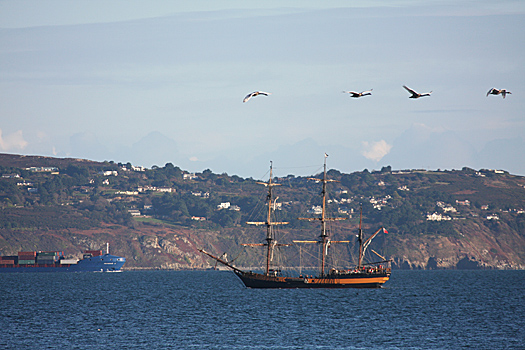
The Earl of Permbroke arrives on Dublin Bay
Looking for further reading on Tall Ships in Ireland? Click the links below:
Click this link to read all our Tall Ships Stories on one handy page
Previewing Ireland's Tall Ships 2011 Season
Can Ireland Get a New Tall Ship?


























